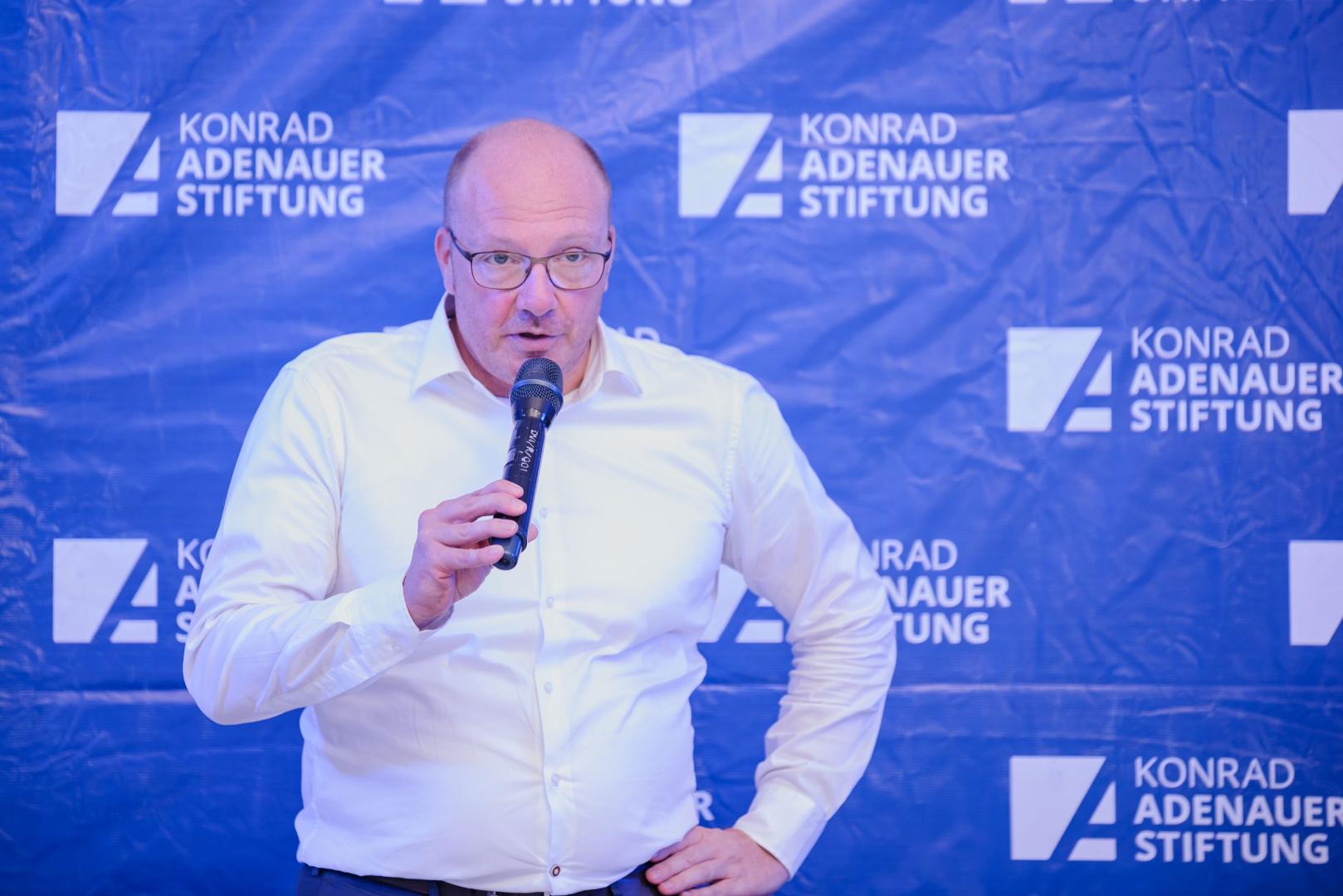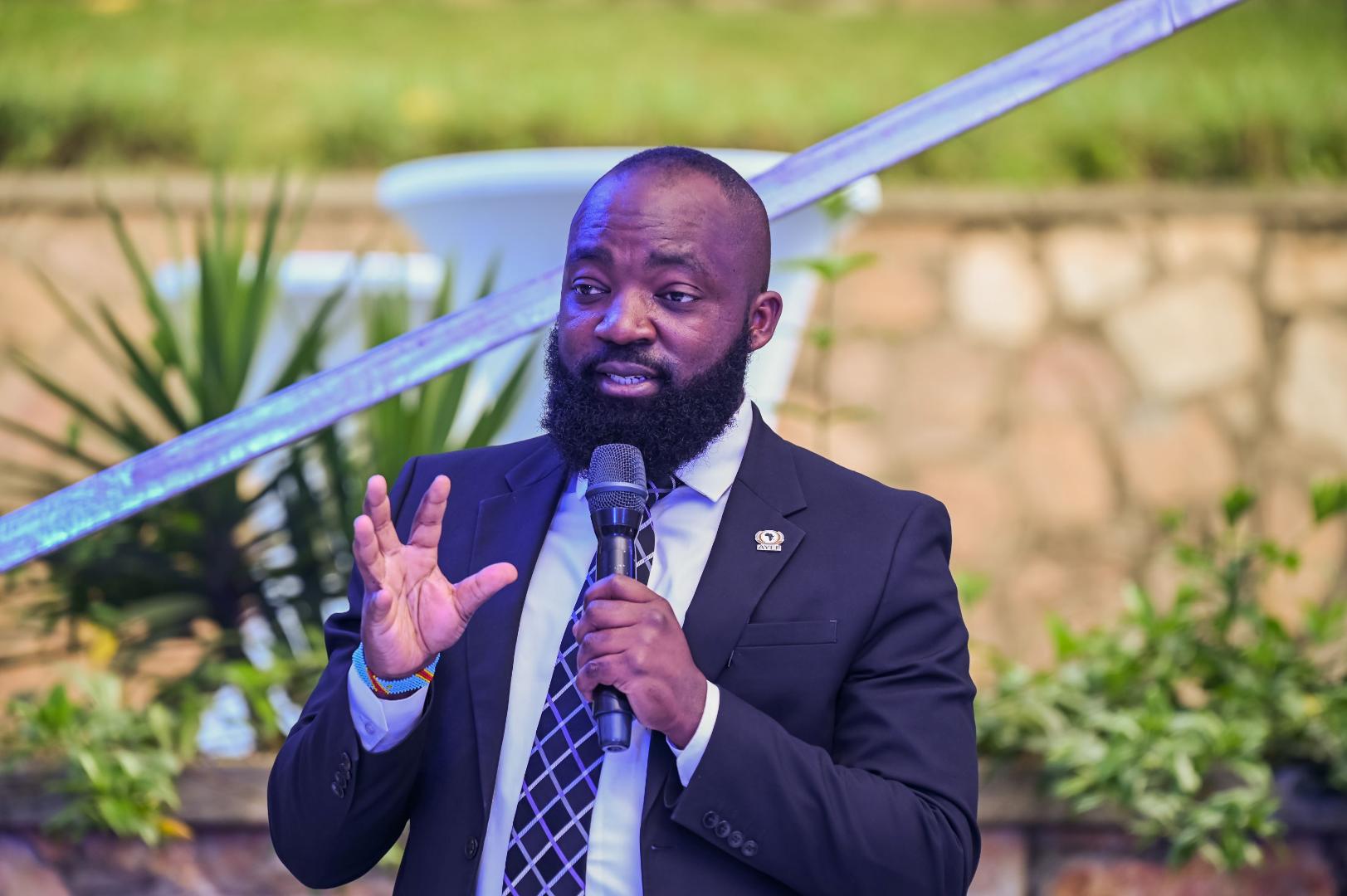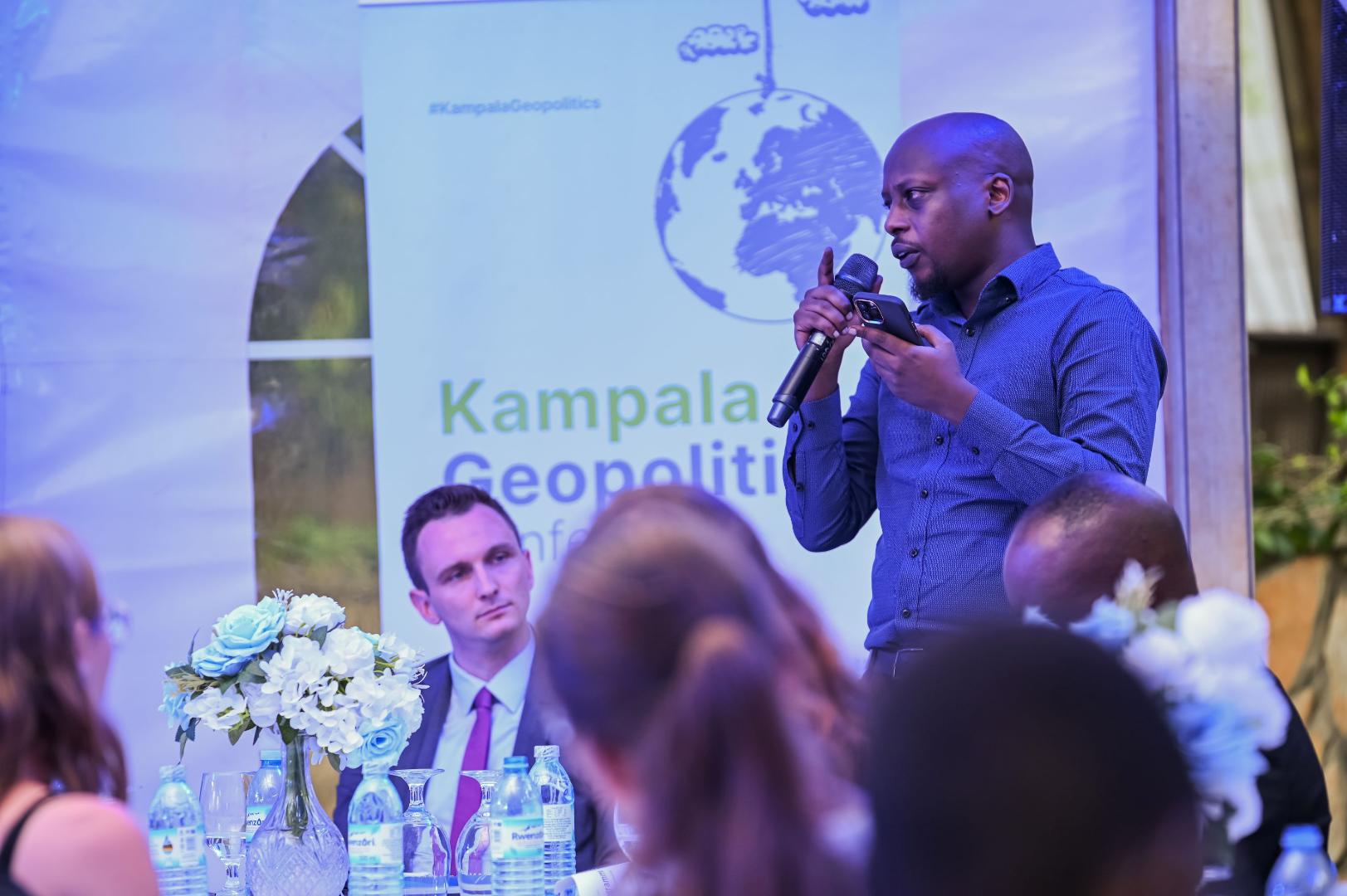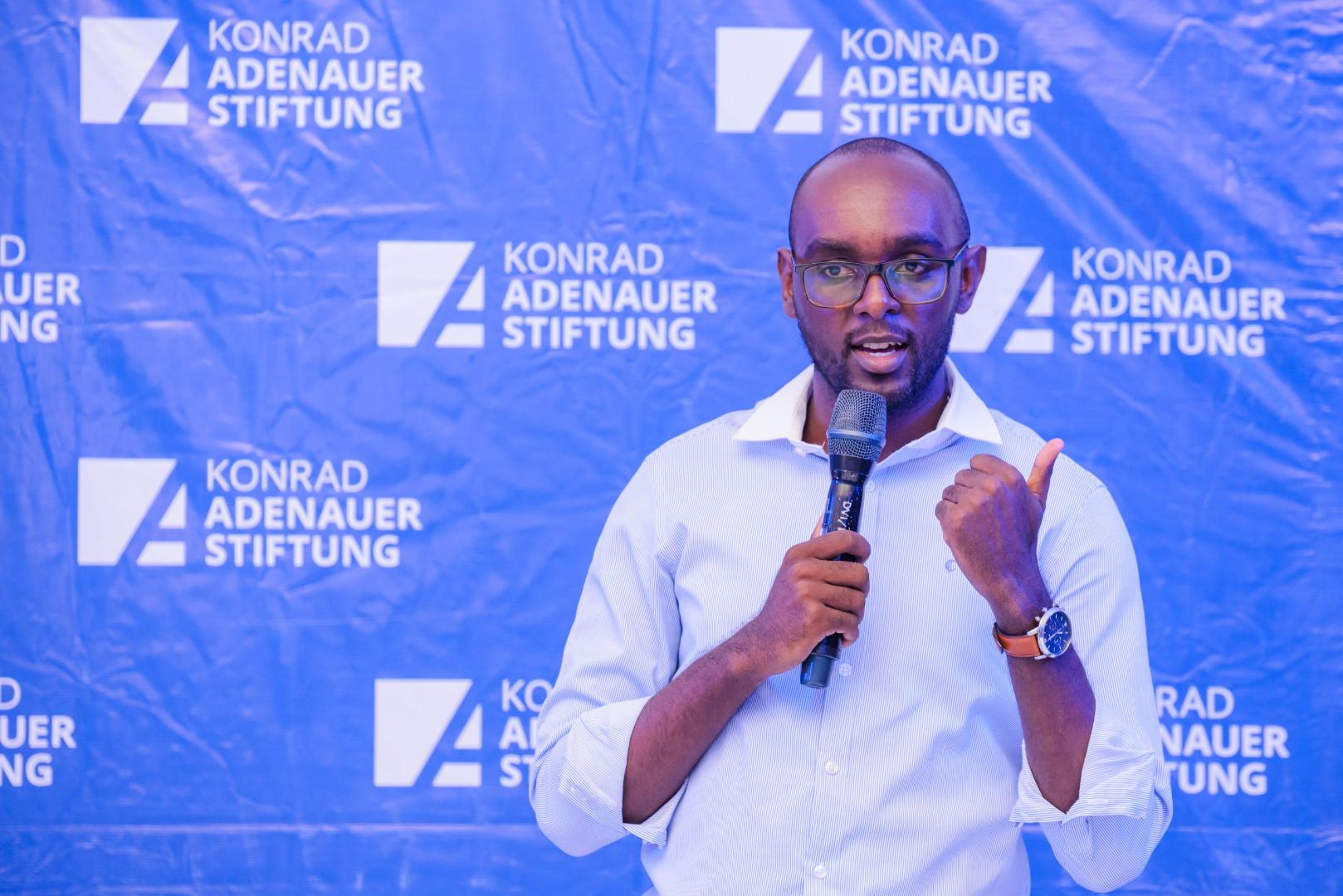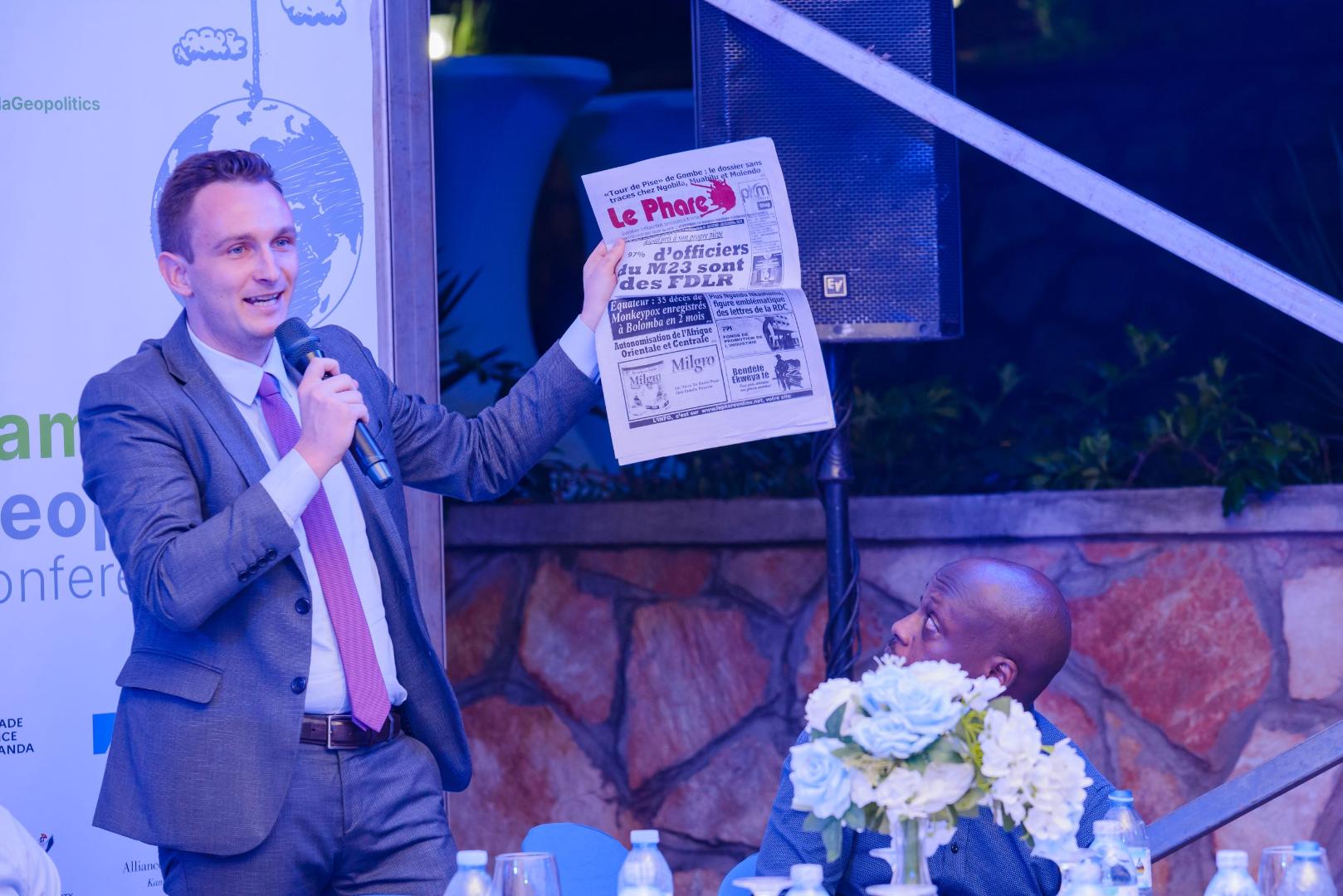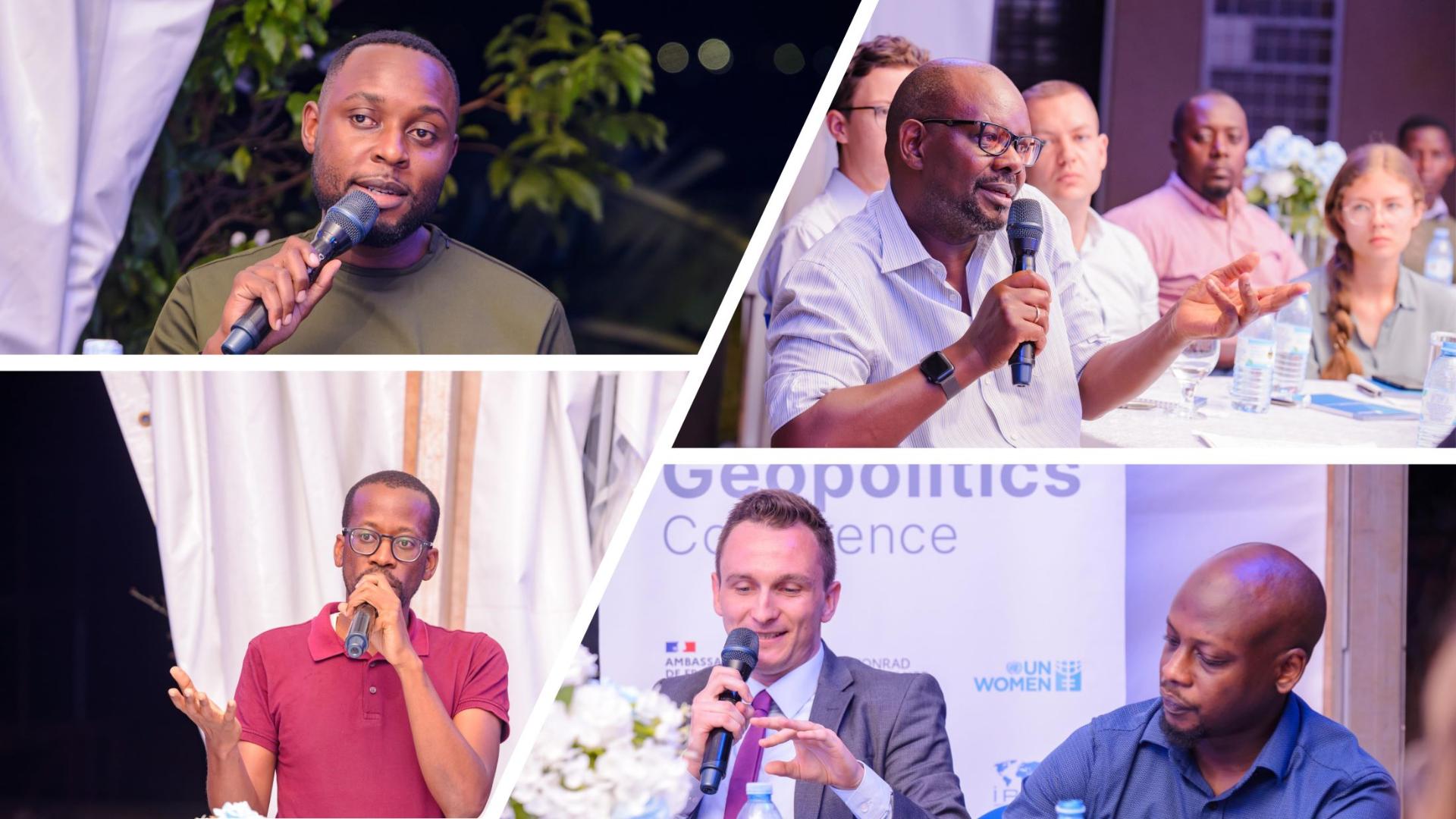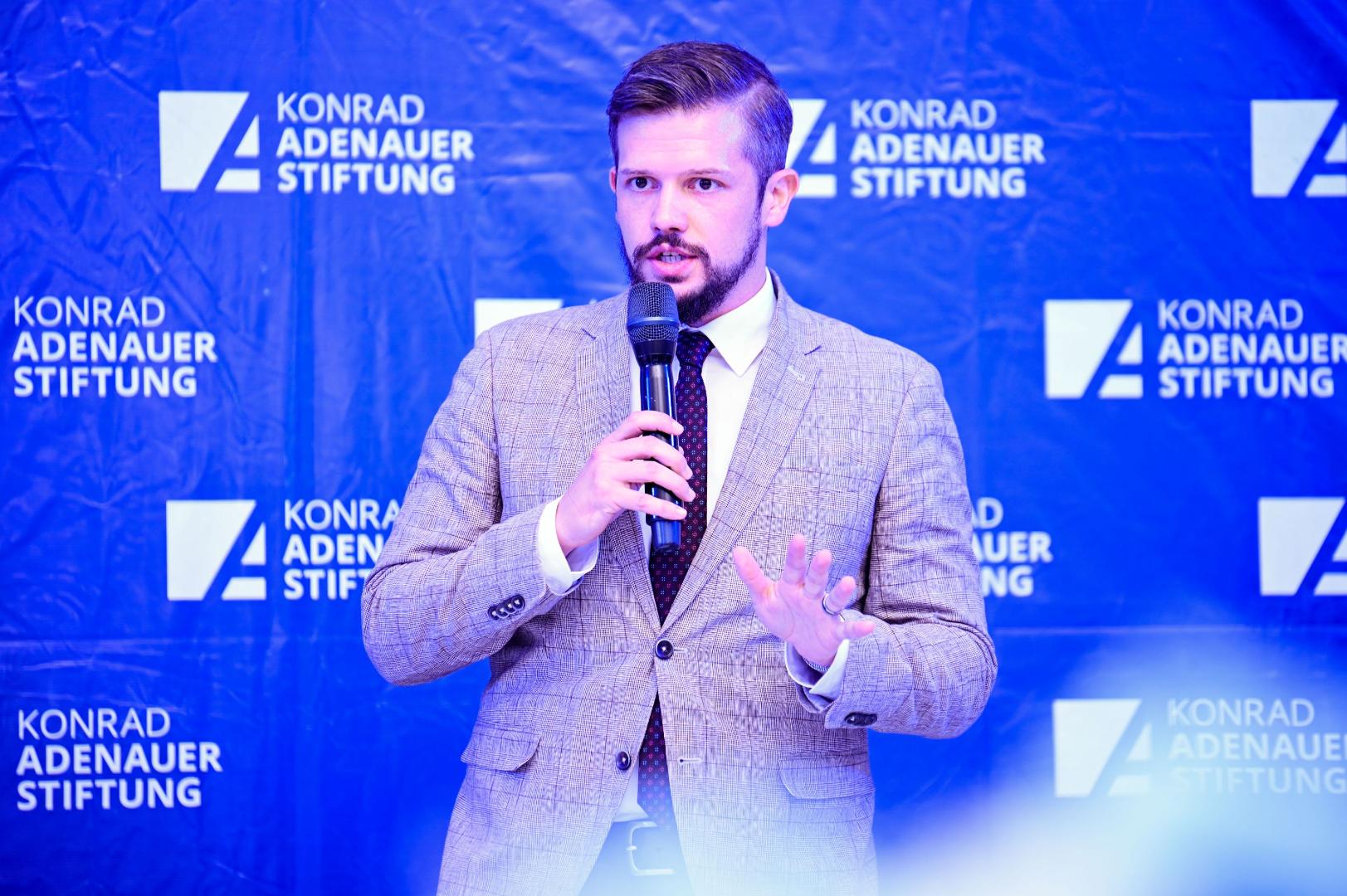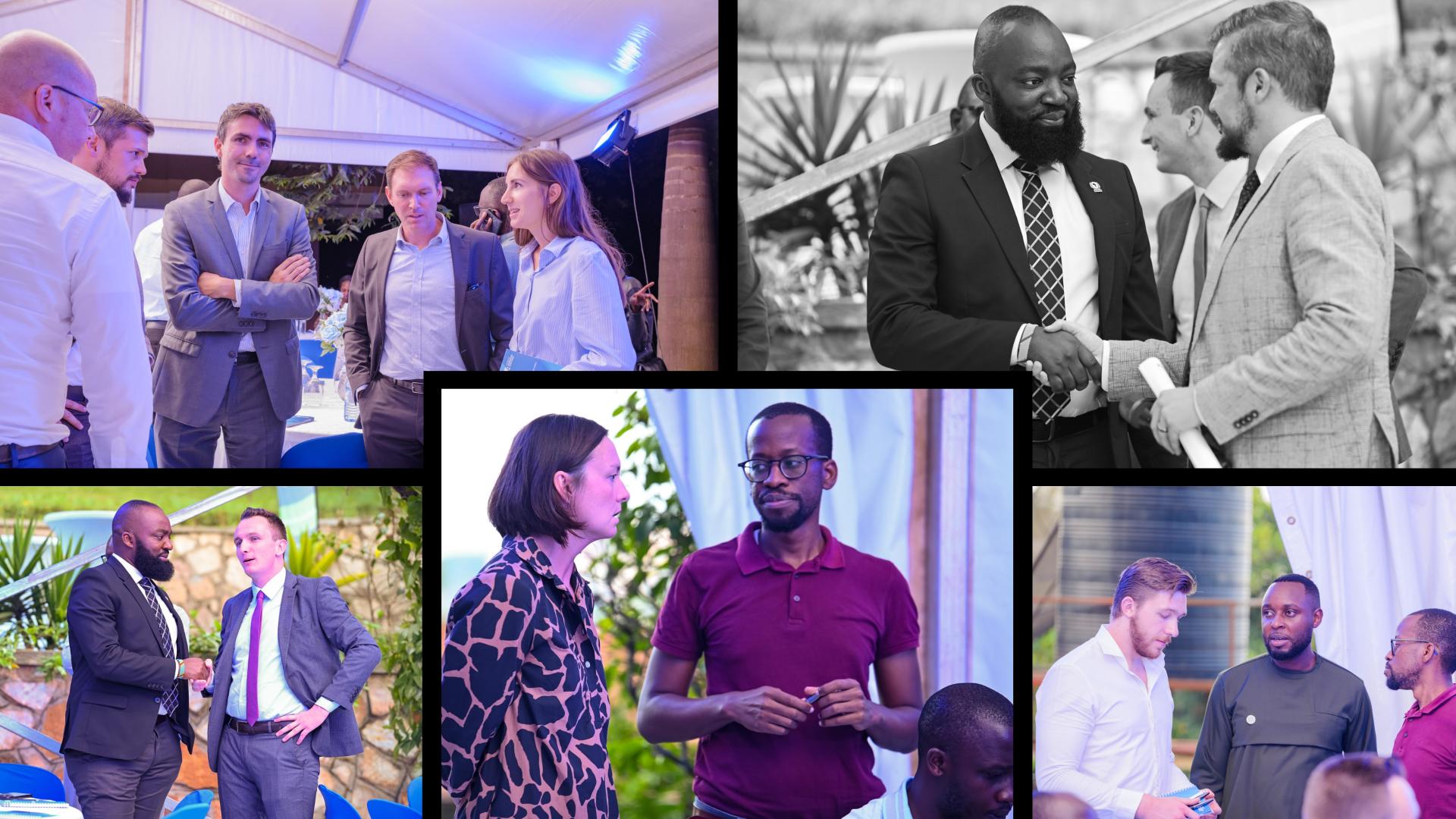Nils Woermer, the director of the RP SIPODI EA, gave a detailed account of the ongoing military situation in the Red Sea. He gave an assessment of the military threat posed by the Houthis, the impact of these disruptions on global trade, and the response by various players. In particular, Nils Woermer explained the contribution of Germany to EU NAVFOR Aspides and the deployment of the Frigate Hessen in the Red Sea. He also took note of the challenges of this operation such as the high costs of the ammunition and the divided military approach by European countries.
Lucas Lamberty, the Country Representative of the KAS Iraq Office explained the outlook Iran’s network of non-state armed groups in the Middle East such as the Hezbollah in Lebanon, the Shia militias in Iraq, Hamas in Palestine, a number of militias in Syria and the Houthi in Yemen. He highlighted that Iran and its proxies do not have a definite ideology, but they claim to be pushing back against the United States and its allies in the Middle East through a forward defence strategy. Iran’s actions are seen as a response to what Iran perceives as encirclement by the US, which has six military bases in countries around Iran.
The second panel discussed the tensions in Eastern Democratic Republic of Congor (DRC), thirty years after the genocide in Rwanda. The panel was moderated by Gregory Meyer, Project Manager at the RP SIPODI EA and comprised of Fabrice Muchiga, a Political Analyst on the Great Lakes Region, who gave a perspective from Congo, Lionel Manzi, journalist and author at the Pan African Review, who gave the Rwandan perspective, Kwezi Tabaro, Deputy Director at the LeO Africa Institute, who gave a generalised context as a Ugandan observer and Jakob Kerstan who heads the KAS Country Office in DRC gave a broader outlook that captured a European view.
Fabrice Muchiga attributed the tension in DRC to the foreign economic interests in DR Congo that seek to take advantage of the tensions between the various ethnic groups in the country. He alluded to the fact that these interests relate to the global race for minerals, specifically the minerals that a key to the manufacture of electric vehicle batteries. He decried the lack of trust between DRC and some of its neighbours as the biggest challenge to the pacification of the Eastern part of the DRC.
Lionel Manzi highlighted that the genocide ideology is the root cause of the conflict in DRC. He emphasised that genocide denial is still apparent in DRC and that the Congolese state has not only abdicated its responsibility to reprimand genocide crusaders but has also been an instigator of ethnic conflicts. He suggested that peace efforts in the DRC should be genuine and centred on a high standard of accountability if they are to be meaningful.
Kwezi Tabaro highlighted that the tensions in DRC are situated in various unresolved episodes conflicts in the post-colonial establishments of the Great Lakes Region. He also noted that foreign powers have exploited local disputes in DRC so as to assert their influence and control over critical minerals.
Jakob Kerstan noted that the Congolese state is militarily weak and unable to supress the various armed groups in Eastern DRC. He added that DRC needs to solve the governance challenges it faces in order to ably organise militarily against the various armed groups and called on the International Community to pay more attention to the human rights violations in Eastern DR Congo.
The presentations and thematic inputs by the experts were followed by a discussion with the participants of the event. After this, Gregory Meyer thanked the speakers for the interesting debate on a politically sensitive theme. Nils Wörmer invited all guests to continue the exchange at the subsequent dinner reception.
About this series
The Konrad-Adenauer-Stiftung, its educational institutions, centres and foreign offices, offer several thousand events on various subjects each year. We provide up to date and exclusive reports on selected conferences, events and symposia at www.kas.de. In addition to a summary of the contents, you can also find additional material such as pictures, speeches, videos or audio clips.



